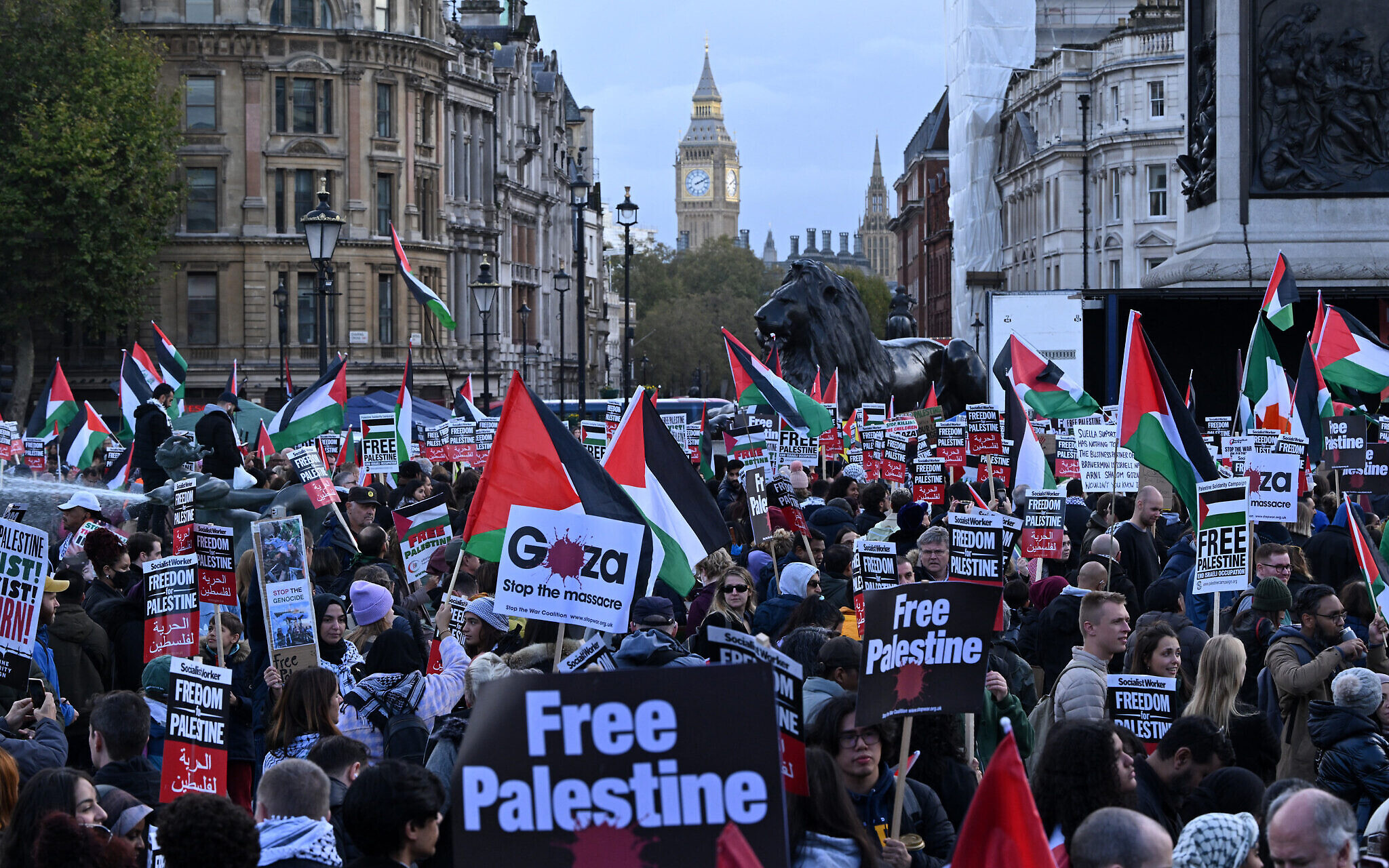Amid the ongoing Israeli-Palestinian conflict, questions like “Where were you when Syria was being destroyed?” and “Where were you during the ethnic cleansing of the Rohingya and Uyghurs?” have become common talking points for pro-Israeli groups. They aim to portray pro-Palestinian marches and protests as inherently anti-Semitic, suggesting that these movements are against Jews as a whole.
However, such arguments falter when one considers that many of these protests are organized and led by non-Zionist Jews themselves. This diversity within the pro-Palestinian movement challenges the oversimplified narrative pushed by these pro-Israeli groups.
At the heart of the matter of why there was a lack of disruptive marches for past atrocities is the active involvement of the West in combating and speaking out against genocides worldwide, including the Syrian massacres and the brutality in Myanmar, while Israel continues to receive substantial financial, military, and political support from the very same governments. This discrepancy raises questions about the ethical stance of nations supporting Israel in the face of human rights violations.
For instance, suppose the Canadian government were to offer full support to China, providing arms for their ethnic cleansing of Uyghurs. In such a scenario, substantial protests would undoubtedly erupt in response to these actions. However, Canada doesn’t engage in such support; in fact, it actively condemns China’s atrocities and raises its voice against them. Unfortunately, the same cannot be said for their actions with Israel.
Pro-Israeli parties argue that the protests disrupt normalcy or go against pro-Israel interests, but the core issue lies in the West’s active role in combating global genocides while financially, militarily, and politically supporting Israel.
The essence of protests lies in a population’s plea for the authorities to address their grievances. In this case, the grievance is the objection to elected representatives supporting a situation that echoes past genocides, such as the Rohingya crisis.
Zionist criticism often questions why the focus is solely on Zionism and not on groups like Hamas. The argument against protesting Hamas revolves around its already designated status as a banned terrorist group. One only has to look at the practicality of protesting an organization that many nations condemn, do not fund, arm, or support. A protest against Hamas would merely maintain the status quo without achieving any tangible change. We do not arm them, support them financially nor do we support them politically, so a protest would do nothing to change the course of action of western governments.
A recurring theme in Israeli politics is the perception that Israel is held to a different standard than other countries. The claim suggests that Israel is singled out and treated disproportionately because it is the sole Jewish state. However, the reality is more nuanced. Israel’s self-proclamation as the only democracy in the Middle East subjects it to heightened scrutiny and standards. While some may argue that this is unfair, others contend that being a democracy demands a higher degree of accountability.
Ultimately, the criticism of pro-Palestinian marches centers on one key aspect: genocide apologia. While these marches may not be convenient and certainly disrupt public order, their disruptive nature is essential. Without the disruption, these protests would go unnoticed, rendering them ineffective. People must talk about them, to be aware of the issues at hand. If these protests are not disruptive and prominently visible, the fear is that when the next atrocity occurs, God forbid, we may regard the Palestinian marches in the same manner as demonstrations for the Rohingya and Uyghurs—pretending they never happened. The disruptive nature of the protests is essential to ensure that these issues remain at the forefront of public awareness and discourse.



